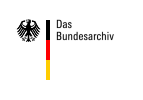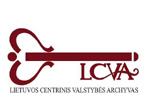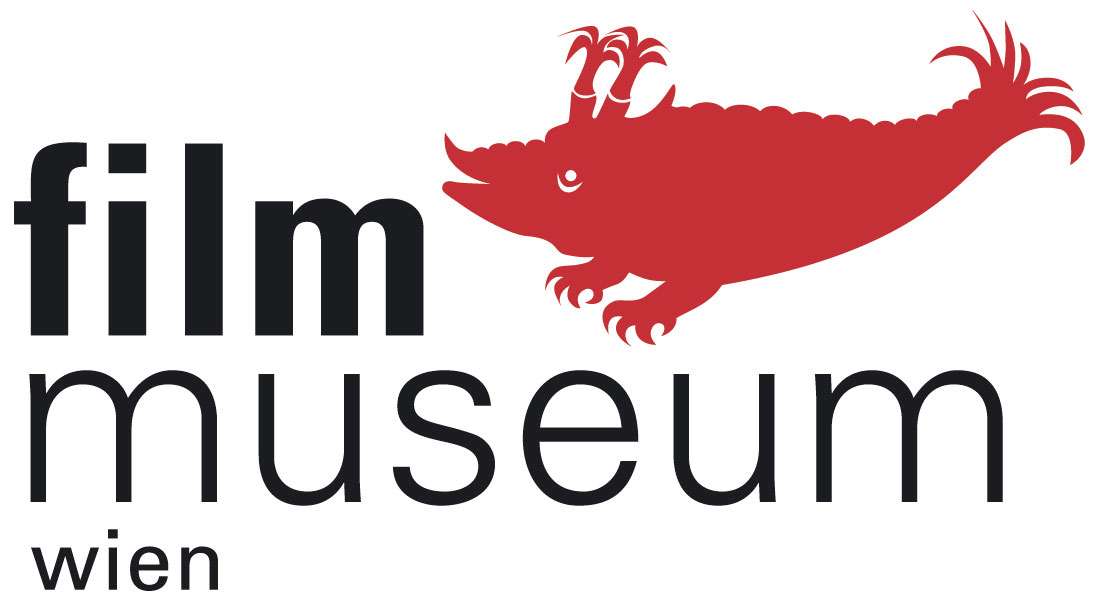![]() >> www.cnc-aff.fr The CNC French Film Archives were created in 1969 on the initiative of André Malraux, Minister of Culture, so that the state could take over the inventory and conservation of old films, including those on nitrate supports. Subsequently, the collections of old films steadily grew. In addition to voluntary deposits, donations, and acquisitions, legal deposits for films were implemented in 1977 and became the CNC’s responsibility in 1992.
>> www.cnc-aff.fr The CNC French Film Archives were created in 1969 on the initiative of André Malraux, Minister of Culture, so that the state could take over the inventory and conservation of old films, including those on nitrate supports. Subsequently, the collections of old films steadily grew. In addition to voluntary deposits, donations, and acquisitions, legal deposits for films were implemented in 1977 and became the CNC’s responsibility in 1992.
Archives partenaires
>> www.cncinema.abt.ro Arhiva Nationala de Filme (ANF) was established in 1957 as sole institution in Romania that collects, preserves and uses films for non-commercial purposes. Over the years it has been active in finding and identifying films, cataloguing as well as carrying out a series of studies on the history of Romanian cinema. It is a member of FIAF since 1960 and member of ACE since 1996.
 >>www.bundesarchiv.de It is the concern of every cultured nation to maintain, care for, make accessible to the public and continually supplement its stock of moving pictures. The Federal Republic of Germany primarily fulfils this responsibility through the Federal Archives. The Federal Film Archive in Berlin is one of the largest archives of its kind in the world.
>>www.bundesarchiv.de It is the concern of every cultured nation to maintain, care for, make accessible to the public and continually supplement its stock of moving pictures. The Federal Republic of Germany primarily fulfils this responsibility through the Federal Archives. The Federal Film Archive in Berlin is one of the largest archives of its kind in the world.
Dans le cadre de ses activités, Cinecittà Luce produit des documentaires et films italiens, assure la promotion culturelle et commerciale de films italiens lors de festivals et d’événements dans le monde entier et mène d’autres activités liées au cinéma.
![]() >>www.cinemateca.pt La Cinemateca Portuguesa-Museu do Cinema représente le musée national du cinéma au Portugal, une institution d’État dédiée à la conservation et à la projection du patrimoine cinématographique du Portugal et du monde entier. Cet établissement a été fondé au début des années 50 par Manuel Félix Ribeiro, un pionnier de la cinémathèque puis est devenu une institution indépendante en 1980.
>>www.cinemateca.pt La Cinemateca Portuguesa-Museu do Cinema représente le musée national du cinéma au Portugal, une institution d’État dédiée à la conservation et à la projection du patrimoine cinématographique du Portugal et du monde entier. Cet établissement a été fondé au début des années 50 par Manuel Félix Ribeiro, un pionnier de la cinémathèque puis est devenu une institution indépendante en 1980.
 >> www.cinematheque.fr La Cinémathèque Française a été fondée en 1936 par Henri Langlois, Georges Franju, Jean Mitry et Paul Auguste Harlé. Elle est devenue au fil des ans une référence en matière de culture cinématographique ainsi que l'une des archives les plus célèbres dans le monde grâce à la richesse de ses collections. C’est également un lieu où plusieurs générations ont découvert le cinéma.
>> www.cinematheque.fr La Cinémathèque Française a été fondée en 1936 par Henri Langlois, Georges Franju, Jean Mitry et Paul Auguste Harlé. Elle est devenue au fil des ans une référence en matière de culture cinématographique ainsi que l'une des archives les plus célèbres dans le monde grâce à la richesse de ses collections. C’est également un lieu où plusieurs générations ont découvert le cinéma.
>>www.cinematek.be The Cinémathèque Royale is one of the most important archives in Europe and in the world, due to its collections, its activities in exhibiting and distributing archival films across Europe, its role in the International associations of Archives (FIAF, ACE), its technical staff who has a history of breakthrough research in film restoration, and its activity of research in a network of collaborations via many EU-funded projects in the past 20 years.
![]() >>www.cinetecadibologna.it La Cineteca di Bologna est une institution municipale dont la mission première consiste à préserver et diffuser le patrimoine cinématographique sous toutes ses formes et expressions. Elle est née dans les années 60 de la Commission du Cinéma de Bologne et se fonde sur l’idée que notre passé culturel est vivant et qu’il a par conséquent un avenir. Depuis lors, l’idée de retrouver et de rédécouvrir notre patrimoine cinématographique a toujours été à l’origine des actions entreprises : enquête sur les sources, regroupement des collections, développement d’une prise de conscience et d’un savoir-faire en matière de conservation et de restauration, formation du personnel dans un domaine alors plutôt inconnu et constitution d’un réseau de relations et d’échanges.
>>www.cinetecadibologna.it La Cineteca di Bologna est une institution municipale dont la mission première consiste à préserver et diffuser le patrimoine cinématographique sous toutes ses formes et expressions. Elle est née dans les années 60 de la Commission du Cinéma de Bologne et se fonde sur l’idée que notre passé culturel est vivant et qu’il a par conséquent un avenir. Depuis lors, l’idée de retrouver et de rédécouvrir notre patrimoine cinématographique a toujours été à l’origine des actions entreprises : enquête sur les sources, regroupement des collections, développement d’une prise de conscience et d’un savoir-faire en matière de conservation et de restauration, formation du personnel dans un domaine alors plutôt inconnu et constitution d’un réseau de relations et d’échanges.
 >>www.fondazionecsc.it The Cineteca Nazionale (National Film Archive), part of Centro Sperimentale di Cinematografia, one of the most important film archives in Europe, was instituted by State law in 1949 in order to preserve and propagate Italy's cinematographic heritage. The original nucleus of the collection was put together with the establishment of the Centro Sperimentale di Cinematografia in the 1930s, and it was used as a teaching aid.
>>www.fondazionecsc.it The Cineteca Nazionale (National Film Archive), part of Centro Sperimentale di Cinematografia, one of the most important film archives in Europe, was instituted by State law in 1949 in order to preserve and propagate Italy's cinematographic heritage. The original nucleus of the collection was put together with the establishment of the Centro Sperimentale di Cinematografia in the 1930s, and it was used as a teaching aid.
 >>www.dfi.dk L’Institut du Film Danois (DFI) est l’agence gouvernementale chargée de soutenir et d’encourager la culture du film et du cinéma dont elle assure la conservation. Les activités du DFI englobent tant la participation au développement et à la production de longs et courts métrages et de films documentaires, que la distribution et le marketing ou la gestion des archives cinématographiques nationales et de la cinémathèque.
>>www.dfi.dk L’Institut du Film Danois (DFI) est l’agence gouvernementale chargée de soutenir et d’encourager la culture du film et du cinéma dont elle assure la conservation. Les activités du DFI englobent tant la participation au développement et à la production de longs et courts métrages et de films documentaires, que la distribution et le marketing ou la gestion des archives cinématographiques nationales et de la cinémathèque.
![]() >> www.deutsche-kinemathek.de The task of the Deutsche Kinemathek – Museum für Film und Fernsehen is to collect, preserve, develop, present and mediate our audiovisual heritage. Since 2006, it remains the sole institution in Europe presenting both media together through its permanent exhibitions on film and television.
>> www.deutsche-kinemathek.de The task of the Deutsche Kinemathek – Museum für Film und Fernsehen is to collect, preserve, develop, present and mediate our audiovisual heritage. Since 2006, it remains the sole institution in Europe presenting both media together through its permanent exhibitions on film and television.
 >>www.deutsches-filminstitut.de Créé en 1949, le Deutsches Filminstitut – DIF n’est pas seulement la plus ancienne institution du cinéma d’Allemagne mais également l’une des plus grandes du pays. Depuis l’intégration en 2006 du Deutsches Filmmuseum situé à Francfort-sur-le-Main, le DIF est en mesure de proposer une grande variété de services et de compétences cinématographiques, allant de la gestion des archives composées de nombreuses collections couvrant tous les aspects du cinéma et de la cinématographie, à l’analyse scientifique des documents et à l’éventuelle présentation au public par des projections à l’occasion de festivals et d’expositions ou bien par des publications papier ou en ligne.
>>www.deutsches-filminstitut.de Créé en 1949, le Deutsches Filminstitut – DIF n’est pas seulement la plus ancienne institution du cinéma d’Allemagne mais également l’une des plus grandes du pays. Depuis l’intégration en 2006 du Deutsches Filmmuseum situé à Francfort-sur-le-Main, le DIF est en mesure de proposer une grande variété de services et de compétences cinématographiques, allant de la gestion des archives composées de nombreuses collections couvrant tous les aspects du cinéma et de la cinématographie, à l’analyse scientifique des documents et à l’éventuelle présentation au public par des projections à l’occasion de festivals et d’expositions ou bien par des publications papier ou en ligne.
 >> www.filmi.arhiiv.ee The main task of the Estonian Film Archives, according to the Act of Archives, is to collect, preserve and provide access to the national film, photo and audio heritage. Collecting and preserving film heritage started in 1935. After the II WW governing the archival matters was directed to Moscow. Access to most of the pre-war films was restricted (the first film of Estonian origin was released in 1912).
>> www.filmi.arhiiv.ee The main task of the Estonian Film Archives, according to the Act of Archives, is to collect, preserve and provide access to the national film, photo and audio heritage. Collecting and preserving film heritage started in 1935. After the II WW governing the archival matters was directed to Moscow. Access to most of the pre-war films was restricted (the first film of Estonian origin was released in 1912).
 EYE Film Instituut Nederland soutient la culture cinématographique des Pays-Bas au niveau national. Il gère une collection de films, photographies et affiches de dimension internationale qui reflète les aspects les plus importants de l’histoire du cinéma. De nombreuses pièces de la collection sont uniques au monde.
EYE Film Instituut Nederland soutient la culture cinématographique des Pays-Bas au niveau national. Il gère une collection de films, photographies et affiches de dimension internationale qui reflète les aspects les plus importants de l’histoire du cinéma. De nombreuses pièces de la collection sont uniques au monde.
 Le Filmarchiv Austria constitue le site central de collection et de documentation cinémato-graphiques en Autriche et héberge le patrimoine culturel audiovisuel du pays. Les différentes collections archivées couvrent une période de plus de 100 ans (du 19ème siècle à aujourd'hui). Le Filmarchiv Austria conserve plus de 100 000 copies de films, 2 000 000 de photos et photos de films, près de 25 000 programmes de films et d’innombrables objets, tels que des affiches, des ouvrages et des documents.
Le Filmarchiv Austria constitue le site central de collection et de documentation cinémato-graphiques en Autriche et héberge le patrimoine culturel audiovisuel du pays. Les différentes collections archivées couvrent une période de plus de 100 ans (du 19ème siècle à aujourd'hui). Le Filmarchiv Austria conserve plus de 100 000 copies de films, 2 000 000 de photos et photos de films, près de 25 000 programmes de films et d’innombrables objets, tels que des affiches, des ouvrages et des documents.
![]() >> www.mcu.es Filmoteca Española is the Spanish national film archive under the direction of the Instituto de la Cinematografía y de las Artes Visuales (ICAA) of the Ministry of Education, Culture and Sports. The aims and activities of the Filmoteca Española are:
>> www.mcu.es Filmoteca Española is the Spanish national film archive under the direction of the Instituto de la Cinematografía y de las Artes Visuales (ICAA) of the Ministry of Education, Culture and Sports. The aims and activities of the Filmoteca Española are:

 >> www.fn.org.pl The National Film Archive in Poland was created in 1955. From the beginning it belonged to The International Federation of Film Archives (FIAF), an association of the majority of film archives in the World. The collection of film reels and archival materials such as posters, photos, scripts assembled in Filmoteka Narodowa is one of the largest in Europe. With the help of few generation of archivists Filmoteka Narodowa retrieve 75% of Polish feature films from 1914 to 1939 rescued after the II World War.
>> www.fn.org.pl The National Film Archive in Poland was created in 1955. From the beginning it belonged to The International Federation of Film Archives (FIAF), an association of the majority of film archives in the World. The collection of film reels and archival materials such as posters, photos, scripts assembled in Filmoteka Narodowa is one of the largest in Europe. With the help of few generation of archivists Filmoteka Narodowa retrieve 75% of Polish feature films from 1914 to 1939 rescued after the II World War.
![]() >> www.cinetecamilano.it The Cineteca Italiana was officially founded in Milan in 1947. Its first nucleus was a small stock of cinema masterpieces rescued from destruction in the Thirties and adventurously preserved until after World War II by a group of young cinéphiles and intellectuals among whom there were the future directors Luigi Comencini and Alberto Lattuada.
>> www.cinetecamilano.it The Cineteca Italiana was officially founded in Milan in 1947. Its first nucleus was a small stock of cinema masterpieces rescued from destruction in the Thirties and adventurously preserved until after World War II by a group of young cinéphiles and intellectuals among whom there were the future directors Luigi Comencini and Alberto Lattuada.
 The Imperial War Museum was founded in 1917 to record the story of the Great War and the contributions made to it by the peoples of the Empire. An Act of Parliament formally established the Museum and its governing body, the Board of Trustees, in 1920, when the Museum opened in the Crystal Palace. From 1924 to 1935 the Museum was housed in two small galleries adjoining the Imperial Institute. In 1936 it was reopened in the central portion of the former Bethlem Royal Hospital in Lambeth Road, Southwark where it remains to this day.
The Imperial War Museum was founded in 1917 to record the story of the Great War and the contributions made to it by the peoples of the Empire. An Act of Parliament formally established the Museum and its governing body, the Board of Trustees, in 1920, when the Museum opened in the Crystal Palace. From 1924 to 1935 the Museum was housed in two small galleries adjoining the Imperial Institute. In 1936 it was reopened in the central portion of the former Bethlem Royal Hospital in Lambeth Road, Southwark where it remains to this day.
 >> www.kinoteka.org.rs Jugoslovenska Kinoteka (official title since 1952) or National Film Archive of Republic Serbia is the national film library of the Republic Serbia, founded in 1949. It consists of four organizational units: Film archive, Film museum – the cinema, The Library and General Services. Jugoslovenska Kinoteka is one of the founders and a permanent member of FIAF (International Federation of Film Archives). It takes part in the activities of FIAF since 1951. The heart of the institution is the Film Archive.
>> www.kinoteka.org.rs Jugoslovenska Kinoteka (official title since 1952) or National Film Archive of Republic Serbia is the national film library of the Republic Serbia, founded in 1949. It consists of four organizational units: Film archive, Film museum – the cinema, The Library and General Services. Jugoslovenska Kinoteka is one of the founders and a permanent member of FIAF (International Federation of Film Archives). It takes part in the activities of FIAF since 1951. The heart of the institution is the Film Archive.
![]() >> www.kava.fi Les Archives finlandaises du film ont été fondées en 1957 avec un statut privé. L’année suivante, l’institution devient membre de la Fédération Internationale des Archives du Film (FIAF).
>> www.kava.fi Les Archives finlandaises du film ont été fondées en 1957 avec un statut privé. L’année suivante, l’institution devient membre de la Fédération Internationale des Archives du Film (FIAF).
 >> www.cinetecadelfriuli.org The Cineteca del Friuli was founded in Gemona in 1977, soon after the city was destroyed by the earthquake of May 1976, and is now one of the five major Italian film libraries. It joined the International Federation of Film Archives (FIAF) in 1989. The film archive began with a collection of films of historical interest and it has grown considerably over the years: it currently includes some 10,000 films in 35mm and 16mm, 50% fiction and 50% newsreels and documentaries. Small formats such as 17.5 mm, 9.5 mm, the 8mm and Super8 are also represented in about 500 copies.
>> www.cinetecadelfriuli.org The Cineteca del Friuli was founded in Gemona in 1977, soon after the city was destroyed by the earthquake of May 1976, and is now one of the five major Italian film libraries. It joined the International Federation of Film Archives (FIAF) in 1989. The film archive began with a collection of films of historical interest and it has grown considerably over the years: it currently includes some 10,000 films in 35mm and 16mm, 50% fiction and 50% newsreels and documentaries. Small formats such as 17.5 mm, 9.5 mm, the 8mm and Super8 are also represented in about 500 copies.
>> www.landesfilmsammlung-bw.de The Landesfilmsammlung Baden-Wuerttemberg (LFS) is the central film archive of the federal state of Baden-Wuerttemberg in Germany. It was established in 1998. The LFS collects films from and about Baden-Wuerttemberg. In addition it archives copies of films funded by the MFG Film Funding Organization. More than 8.500 films have been collected so far from communal, church, state and company archives as well as private collections, the major sources of the constantly growing collection. The oldest film reel dates back to 1904, the latest video file was recorded only last year.
 >> www.lichtspiel.ch En 2000, l’association Lichtspiel prend en charge la collection cinématographique alors menacée du technicien du cinéma bernois, Walter A. Ritschard. Depuis cette date, les membres du Comité ont non seulement restauré cette extraordinaire collection et l’ont rendue accessible au public mais ont également développé une cinémathèque régionale servant aujourd’hui de lieu d’échange du cinéma.
>> www.lichtspiel.ch En 2000, l’association Lichtspiel prend en charge la collection cinématographique alors menacée du technicien du cinéma bernois, Walter A. Ritschard. Depuis cette date, les membres du Comité ont non seulement restauré cette extraordinaire collection et l’ont rendue accessible au public mais ont également développé une cinémathèque régionale servant aujourd’hui de lieu d’échange du cinéma.
 >> www.archyvai.lt Les Archives d’État centrales de la Lituanie représentent les plus grandes archives du système d’archivage de l’État. Leur principale mission consiste à collecter et à protéger les documents papier et audiovisuels pour les générations futures ainsi qu’à fournir un accès permanent de leurs collections au public. Les archives audiovisuelles de l’institution se composent d’enregistrements sur films, d’enregistrements sonores et vidéo ainsi que de photos.
>> www.archyvai.lt Les Archives d’État centrales de la Lituanie représentent les plus grandes archives du système d’archivage de l’État. Leur principale mission consiste à collecter et à protéger les documents papier et audiovisuels pour les générations futures ainsi qu’à fournir un accès permanent de leurs collections au public. Les archives audiovisuelles de l’institution se composent d’enregistrements sur films, d’enregistrements sonores et vidéo ainsi que de photos.
 >> http://mandarchiv.hu/ L’Institut hongrois de la science cinématographique a été fondé en 1957. Depuis 2000, il porte le nom d’« Archives Nationales Hongroises du Film » et bénéficie du statut de collection publique nationale. Les tâches des Archives consistent à collecter, acquérir, conserver, restaurer, projeter et entreposer les longs métrages, les documentaires, les films d’actualités, d’animation et de vulgarisation scientifique hongrois ainsi que les classiques du cinéma international.
>> http://mandarchiv.hu/ L’Institut hongrois de la science cinématographique a été fondé en 1957. Depuis 2000, il porte le nom d’« Archives Nationales Hongroises du Film » et bénéficie du statut de collection publique nationale. Les tâches des Archives consistent à collecter, acquérir, conserver, restaurer, projeter et entreposer les longs métrages, les documentaires, les films d’actualités, d’animation et de vulgarisation scientifique hongrois ainsi que les classiques du cinéma international.
 >>www.museocinema.it Unique in Italy and among the most important worldwide, the Museo Nazionale del Cinema (or National Cinema Museum) is hosted within the Mole Antonelliana in Turin, the symbol of the city. Inaugurated in July 2000, it has seen over 6,500,000 visitors (568,000 only in 2012) in 13 years, becoming one of the most visited museums in Turin and in Piedmont and garnering much acclaim at an international level; a remarkable goal for a very particular museum, which proposes to charm its visitors by drawing them into the enchanting world of the Seventh Art.
>>www.museocinema.it Unique in Italy and among the most important worldwide, the Museo Nazionale del Cinema (or National Cinema Museum) is hosted within the Mole Antonelliana in Turin, the symbol of the city. Inaugurated in July 2000, it has seen over 6,500,000 visitors (568,000 only in 2012) in 13 years, becoming one of the most visited museums in Turin and in Piedmont and garnering much acclaim at an international level; a remarkable goal for a very particular museum, which proposes to charm its visitors by drawing them into the enchanting world of the Seventh Art.
 >> www.nfa.cz Les Archives cinématographiques ont été créées à Prague en 1943 par le Centre cinématographique tchéco-morave en vue de protéger des opérations guerrières les documents cinématographiques. En 1946, l’établissement devient membre de la Fédération Internationale des Archives du Film (FIAF). Après avoir fait partie de l’institut tchécoslovaque du film, les archives ont été transformées en Archives nationales indépendantes du film sur décision du Ministère de la Culture en 1992.
>> www.nfa.cz Les Archives cinématographiques ont été créées à Prague en 1943 par le Centre cinématographique tchéco-morave en vue de protéger des opérations guerrières les documents cinématographiques. En 1946, l’établissement devient membre de la Fédération Internationale des Archives du Film (FIAF). Après avoir fait partie de l’institut tchécoslovaque du film, les archives ont été transformées en Archives nationales indépendantes du film sur décision du Ministère de la Culture en 1992.
![]() >> www.nb.no La Bibliothèque Nationale de Norvège est chargée de collecter, conserver et restaurer le patrimoine cinématographique national afin de le rendre accessible pour la recherche et la documentation. Ses collections comptent plus de 21 000 titres dans différents formats, de différents genres et origines.
>> www.nb.no La Bibliothèque Nationale de Norvège est chargée de collecter, conserver et restaurer le patrimoine cinématographique national afin de le rendre accessible pour la recherche et la documentation. Ses collections comptent plus de 21 000 titres dans différents formats, de différents genres et origines.
 >> www.filmmuseum.at Österreichisches Filmmuseum (Austrian Film Museum / OeFM) is a specific exhibition space (film as a time-based event, the experience of a performative act), a collection site and archive (film as an artefact, as local and global memory), a research and study centre, as well as a place for public debate and reflection (film as a nodal point of discourse on culture and society).
>> www.filmmuseum.at Österreichisches Filmmuseum (Austrian Film Museum / OeFM) is a specific exhibition space (film as a time-based event, the experience of a performative act), a collection site and archive (film as an artefact, as local and global memory), a research and study centre, as well as a place for public debate and reflection (film as a nodal point of discourse on culture and society).
![]() >> ssa.nls.uk
>> ssa.nls.uk
The Scottish Screen Archive is a film and video collection of over 100 years of Scotland's history. The archive reflects 20th-century Scottish social, cultural and industrial history, the lives of ordinary Scots across the generations and the achievements of Scottish film-makers in the craft of film production. It joined the National Library of Scotland in 2007.
 >> www.sfi.se The Swedish Film Institute works to promote film across the board – from idea to finished product, during launch in Sweden and around the world, and by preserving films for posterity in our archives. It was founded in 1963 by the Swedish state and the various professional bodies of the film industry.
>> www.sfi.se The Swedish Film Institute works to promote film across the board – from idea to finished product, during launch in Sweden and around the world, and by preserving films for posterity in our archives. It was founded in 1963 by the Swedish state and the various professional bodies of the film industry.
.jpg) >> www.tainiothiki.gr Les Archives grecques du film ont été fondées en 1950 par l’Union des critiques de films à Athènes. En 1963, elles ont officiellement été constituées en archives nationales par décret (105/1963). Depuis 1983, les Archives grecques du film sont membres à part entière de la Fédération Internationale des Archives du Film (FIAF). Les Archives ont le statut de fondation culturelle à but à non lucratif et reçoivent une subvention annuelle du Ministère grec de la Culture.
>> www.tainiothiki.gr Les Archives grecques du film ont été fondées en 1950 par l’Union des critiques de films à Athènes. En 1963, elles ont officiellement été constituées en archives nationales par décret (105/1963). Depuis 1983, les Archives grecques du film sont membres à part entière de la Fédération Internationale des Archives du Film (FIAF). Les Archives ont le statut de fondation culturelle à but à non lucratif et reçoivent une subvention annuelle du Ministère grec de la Culture.
Les Archives détiennent la plus grande et la plus importante collection cinématographique de la Grèce avec 10 000 titres étrangers et plus de 2 500 titres grecs. Elles disposent en outre d’une collection d’appareils datant de l’ère du précinéma, de lanternes magiques ainsi que de différents types de caméras et d’appareils en rapport avec le cinéma. On y trouve également une collection d’environ 7000 photographies provenant de films grecs et 10 000 autres provenant de films étrangers, environ 5000 prospectus et programmes, et environ 800 affiches de films grecs et 1500 de films étrangers. La bibliothèque des Archives possède une grande collection de livres sur le cinéma dont l’édition est épuisée, de catalogues et magazines sur le cinéma directement accessibles au public.
 Deutsch
Deutsch English
English Čeština
Čeština Dansk
Dansk Français
Français Italiano
Italiano Lietuvių
Lietuvių Magyar
Magyar Nederlands
Nederlands Norsk
Norsk Português
Português Suomi
Suomi